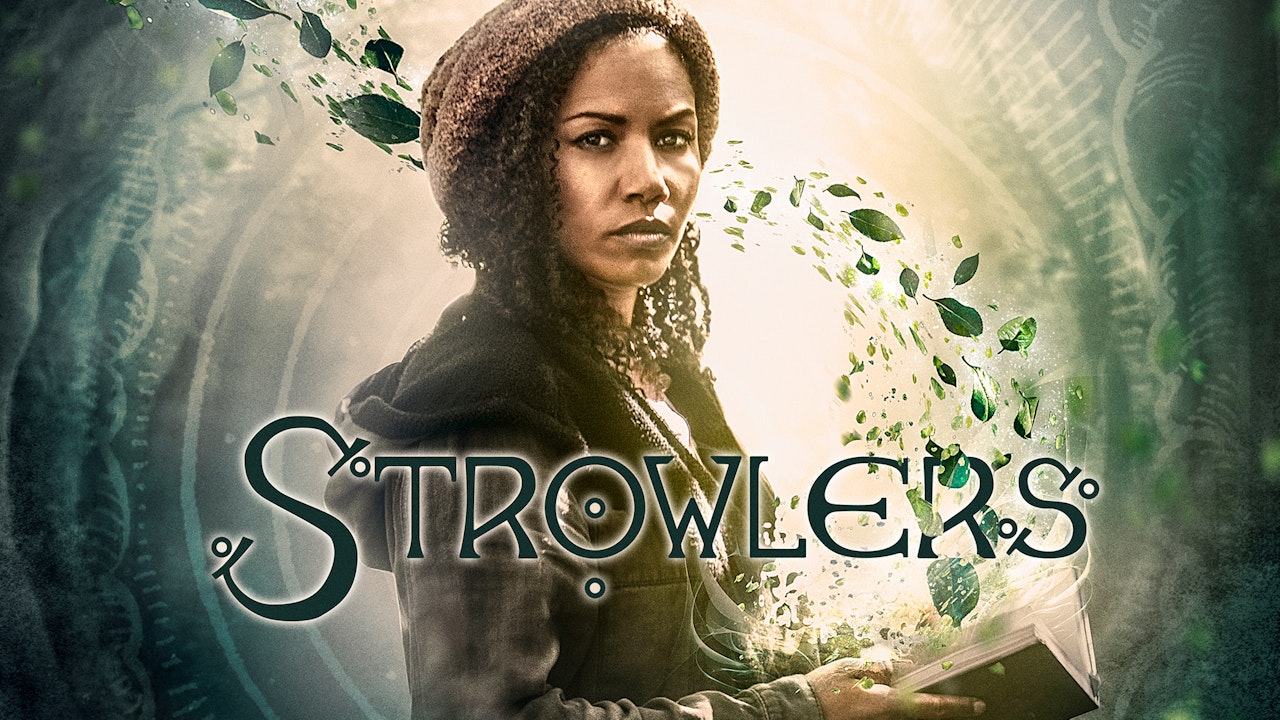This is a translation of my guest post for the Bücherstadt Kurier’s event „#kunterbunt: a feast for diversity„. You can read it in German on their page here: Die richtige Geschichte kann die Welt verändern.

Strowlers is a multimedia universe created by Zombie Orpheus Entertainment, more precisely Ben Dobyns, the mastermind behind it. Stories in this universe tell of a world where magic is real. In addition to the pilot episode – also known as just „Strowlers“ – that takes place in Seattle, the episodes „Strowlers: Amaaji“ (Mongolia) and „Strowlers: Pepper“ (Ireland) were completed alongside it. All three released in August at Gen Con 2018. Each episode tells a different part of the story of the Strowlers from a different angle and of a different way of dealing with magic.
“The right story can change the world.”
At the same time, it plays with the concept that the right story can change the world. Because magic in the „Strowlerverse“ is partly done by telling stories with the help of a special deck of cards.
But what are Strowlers?
“Strowlers” is the name given to those who use magic freely. They are unattached people who move from place to place and work small and large miracles in secret. But that is just one way of defining them. In their essence they are free spirited, creative people, be they writers, musicians, artists or whatever they want to be.
Opposite them are the Arcanologists, who try to tame any free magic and make it controllable and usable for their purposes.
What is the Pilot about?
The pilot tells the story of Whit, a librarian, and her girlfriend Amanda, an Arcanologist who tries to help young magic-talented children while creating a technology that could be dangerous for all magic-talented people.
One day Whit reads the children a story about a goldfinch that lures a young girl deeper and deeper into the forest as around them the forest comes to life. Leaves sweep across the floor of the library and branches stretch towards the children. But the spell doesn’t last long, because the task force of the arcanologists destroys it and suppresses the magic of a little boy, whom they suspect as the source, with a collar made for this purpose.
But soon Whit finds out that another child, Nikki, was behind it and tries to protect her from Amanda’s colleagues who want to burn the magic out of her…
The watching experience
I mainly know ZOE’s web series The Gamers and JourneyQuest, but the quality of this pilot episode is on a whole new level.
Not only is the narrative technique fascinating as it jumps between narrator and narration, but the visual effects are also breathtaking. The play of light adapts to the tone of the story and changes from threateningly dark to hopefully radiant, depending on how it is needed.
Added to this are the strong messages, not only about magic and fear of the uncontrollable, but also about storytelling itself. Especially as an author*ess a fascinating aspect.
“Every story is a labyrinth. You begin a journey to the center, then wind your way out again and end up somewhere new, but while you’re in the center you have chance to change things.”
The Characters
The three main characters are plausibly depicted and all follow their characteristics.
Whit, the idealist, who fights for what she thinks is right.
Amanda, the remorseful one, who tries to save others from her own fate, at all costs.
And Nikki, the frightened one, who still can’t really understand what might happen to her and what has already happened to so many others.
The side characters are only touched on, but you still get a feeling for them. Especially Nikki’s „burned“ father and the Strowler Josiah leave a lasting impression.
General Opinion
As a pilot for a much bigger world, it definitely makes you want more and lets you see beyond the limited development of the side characters, whose story may be continued later.
Visually, this episode simply captivated me, together with the story and the storytelling it is simply a wonderful interplay.
“The best fictions are the ones surrounded by truths.”
How true this statement can be, can be seen when you look at the dystopian elements that the Arcanologists introduce into history and see how quickly something like this could happen in our world.
You too can become a part of the Strowlerverse
With the release of the pilot episode, this world is made accessible to all, so that everyone can contribute a part to it. Be it in the form of new stories, films, poems or other creative ideas. It is licensed under a special Creative Commons license, which allows you to be creative by stating the source. And with a little aptitude, this contribution can also become official canon.
If this piqued your curiosity you can find the Trailer – an later the episodes – here: Trailer.
Anne/PoiSonPaiNter

